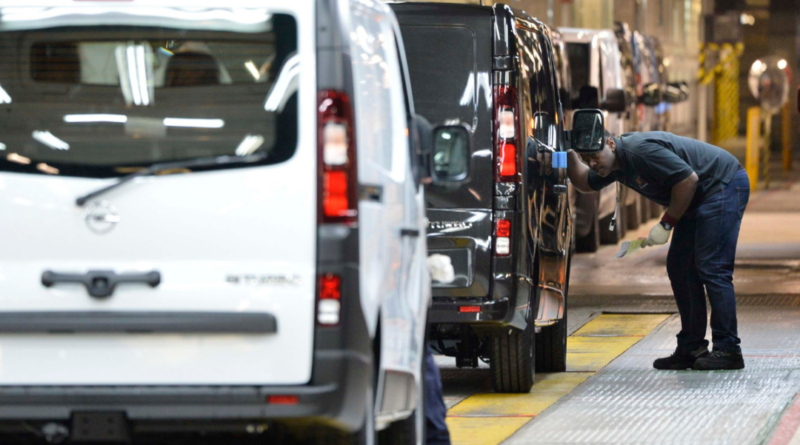Car Manufacturing Has Worst November Since 1980, Says Industry Body
The trade and business secretary has also written to Vauxhall owner Stellantis, asking them to reconsider closing the plant.
British car manufacturing has seen its worst performance in the month of November in over 40 years, the Society of Motor Manufacturers and Traders (SMMT) has said.
Production is also down 30.1 percent on November 2023, and represents the ninth consecutive month of decline.
The industry body puts the poor performance down to weak consumer demand and industrial upheaval, as plants retool themselves for electric vehicle (EV) production.
“Given the restructuring that is taking place across the global automotive industry which has seen plant closures, including the UK over this period, and the changes underway as companies transition from ICE [internal combustion engine] to EV production, a decline was expected,” the SMMT said.
Depressed Market
SMMT also noted that consumer confidence is “depressed” domestically and in key overseas markets, with the EV market not growing as fast as expected.
Mike Hawes, the SMMT’s chief executive, said: “These figures offer little Christmas cheer for the sector.
“While a decline was to be expected given the extensive changes underway at many plants, manufacturing is under pressure at home and abroad, with billions of pounds committed to new technologies, new models and new production tooling.”
Vauxhall Plant Closure
The status of British vehicle manufacturing comes less than a month after Vauxhall owner Stellantis announced plans to close its van-making factory in Luton, putting some 1,000 jobs at risk.
The company said the decision came amid the government’s “stringent” green targets, and it plans to consolidate its operations for making electric vehicles at their Ellesmere Port site in Cheshire. Stellantis has said the move will create hundreds of new permanent jobs in Cheshire for those staff who want to relocate from Luton.
If the plans go ahead, the Luton plant will close in April 2025.
Since then, the government has called on Stellantis to reconsider.
The letter from Reynolds to Hopkins said, “I want to assure you that I have written to Stellantis to ask them to pause their decision around redundancy processes to enable more time for discussions with Government about options to keep the plant open.”

Secretary of State for Business and Trade Jonathan Reynolds walks outside Number 10 Downing Street in London, on July 9, 2024. Chris J. Ratcliffe/Reuters
Reynolds continued that should Stellantis proceed with a closure, his department will work across government to ensure the necessary support is put in place for affected workers.
“Luton has a talented workforce and the Government is keen to work with you to support maintaining skilled manufacturing jobs in the area,” the business secretary said.
ZEV Mandate
Last month, auto manufacturers met with ministers to discuss EV sales quotas, and expressed concerns that net zero mandates would put jobs at car factories at risk.
Currently, the zero-emissions vehicle (ZEV) mandate requires that 22 percent of all new car sales be electric in 2024, rising to 80 percent by 2030 and 100 percent by 2035. Manufacturers face fines of £15,000 per ICE vehicle sold beyond those limits.
However, the new Labour government had committed to reversing the previous Conservative administration’s decision.

Employees make final checks to cars on the production line at Nissan’s plant in Sunderland, England, on July 1, 2021. Oli Scarff/AFP via Getty Images
The SMMT previously said that many car manufacturers would “struggle to comply” if Labour reinstated the 2030 deadline. It also said that weak market demand combined with the “need to fulfil ever-rising sales quotas” will cost the industry £6 billion this year.
Wilkinson said, “Job losses in the car industry are a tragedy that could have been avoided if the government had listened to concerns about this policy.”
He added that even the EU favours “a more ‘technology neutral’ approach, whereas in the UK, we are restricting consumer choice far more aggressively.”





